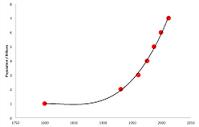 The etymology of drastic takes us to drastikós , a word from the Greek language. It is an adjective that can be used to describe someone or something that is crude, inflexible, radical or severe .
The etymology of drastic takes us to drastikós , a word from the Greek language. It is an adjective that can be used to describe someone or something that is crude, inflexible, radical or severe .
For example: “I'm going to be a little drastic but you have to understand me: either you adopt a healthier lifestyle or you die” , “We need to make a drastic change if we don't want the company to go bankrupt” , “The star made a drastic renovation of her image and dyed her hair pink.”
Many times the idea of drastic is used to name a type of modification that is very noticeable or obvious . If a man who wore long hair decides to shave it, it can be said that he underwent a drastic change in appearance . For his part, a young priest who abandoned his habits and became an underwear model changed his life drastically .
Drasticity can also be seen in abrupt changes in statistics or trends . Suppose a country used to have an unemployment rate of between 3% and 5% . However, following an economic crisis, this index shoots up to 28% in just a few months. The growth of unemployment, in this framework, was drastic.
In a similar sense, if a government that allocated 10,000,000 pesos per month to subsidize scientific activity announces that it will reduce said aid to just 5,000,000 , it can be said, therefore, that the authorities will make a drastic cut in these subsidies, since they will only give half of the money they contributed before.
Drastic decisions are not usually well regarded by society, although sometimes they represent the only way to overcome a harmful situation. The organized world seeks stability, and to do so it relies on systems that try to repress our impulses, leading us down a path of consumerism and imposed ideals that little by little appease our most instinctive desires.
 In most societies today, the ideal citizen follows the path that his elders trace for him before his birth: generally, it is a life of study and work that can support the development of his own family, your spouse and your children, with rectitude and responsibility. In the biography of the right person there is no room for surprises, since "the instructions from their parents should be enough for them to know what to do at all times." However, the great geniuses who have revolutionized the course of humanity, and those who will come, have made and will make drastic decisions.
In most societies today, the ideal citizen follows the path that his elders trace for him before his birth: generally, it is a life of study and work that can support the development of his own family, your spouse and your children, with rectitude and responsibility. In the biography of the right person there is no room for surprises, since "the instructions from their parents should be enough for them to know what to do at all times." However, the great geniuses who have revolutionized the course of humanity, and those who will come, have made and will make drastic decisions.
A purgative is a substance that is used with the aim of evacuating the belly , that is, purging it (cleaning it, removing waste or harmful elements). A drastic purgative is called, in this context, one that, if administered in very high doses, can become an irritating poison.
The drastic purgative is of a forceful type, and must be used with great caution. It is usually used in any case that requires a great revulsion (a curative means that doctors use for certain internal diseases; it involves the production of inflammation or congestion on the surface of the mucous membranes or skin using some chemical, physical agent. or even organic). For example, it is used when there is a case of dropsy or cerebral congestion, among others.
It is important to note that drastic purgatives should not be administered to patients with inflammations in the digestive organs. Some of the most common are the following: spurge oil; gutta gum; acíbar; evade; colocynthid; croton tiglio oil; jalapa; Indian pine nuts; Leroy's purgative.
